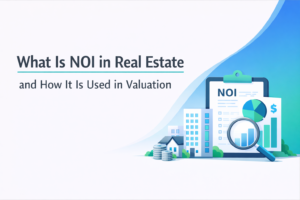
Mastering the Art of Property Building Management: Key Strategies for Success
Stepping into any business is never easy, you know? Every business requires a whole bunch of skills that you have to know upfront. And let me tell you, property building management is no exception. If you think you can waltz into it without any knowledge, you’re in for a world of hurt. We’ve seen so many property managers start all passionately and end up on the wrong side of the tunnel, facing massive losses.
So, what do you need? Skills, strategies, knowledge – you name it! We put together this comprehensive article to break it all down for you. In this article, we’ll explore some top property management strategies that can lead to success in the real estate industry. Sounds good? Let’s get started.
9 Property Building Management Strategies to Know
1. Communication Clarity
When it comes to ace property building management, it’s all about good communication, you know? Not that other things aren’t necessary, but seriously, communication is critical. Building excellent relationships with both property owners and tenants starts with keeping those communication lines wide open. It’s a game-changer, no doubt about it.
For property owners, keeping them in the loop is vital. Regular updates on their investments and being on the ball with any concerns they have? That’s the golden ticket to smoother sailing and happier folks all around.
Transparency is where the magic happens. Giving owners all the nitty-gritty details about their property’s performance – financial statements and occupancy rates – helps them make informed decisions. And are they being lightning-fast at fixing things up for tenants or sorting lease queries? That’s a win-win.
But it’s not just about the owners. Tenants need that TLC, too. Quick responses to their questions, crystal-clear info about rent and leases, and fixing any hiccups pronto? That’s how you keep the peace and make everyone feel at home.
Bottom line: being a communication champ is the heart of property management. Nail that open, honest dialogue with owners and tenants, and watch the whole ship sail smoothly. Everyone’s a winner!
2. Tenant Screening – Key!
We’ve got communication covered, but let’s talk about another crucial point – finding the right tenants! It’s important because it directly impacts your property’s value and helps avoid potential issues. We highly recommend conducting a thorough screening process to ensure you get top-notch tenants. Trust us, it’s worth it!
This includes background checks, credit history evaluation, rental history verification, and income verification. By selecting responsible and reliable tenants through this meticulous process, you can significantly reduce the chances of late payments, property damage, or eviction. Ultimately, this safeguards the success and profitability of your rental properties.
When screening potential tenants, paying attention to specific details, such as verifying their employment status and stability, is essential. This can include contacting their employer to confirm their job position, how long they’ve been employed, and their income level. It might also be helpful to ask for recent pay stubs or tax returns to understand their financial situation better.
Another thing to consider is getting references from previous landlords or property managers. This can give you valuable insights into the tenant’s behavior, reliability, and overall renting experience. By reaching out to these references, you can find out about their on-time rent payments, how well they followed the lease terms, and if there were any issues with property damage.
3. Importance of Routine Maintenance
Proactive maintenance is not just highly effective but also a cost-efficient strategy that plays a crucial role in preserving the long-term value of your properties. By implementing a well-structured schedule for routine inspections and maintenance, you can consistently identify and address potential issues before they become significant problems.
Regularly servicing and maintaining vital systems like HVAC, plumbing, and electrical systems can significantly contribute to preventing costly emergency repairs down the line. This meticulous approach ensures the smooth operation of your properties. Knowing that you’re taking the necessary steps to protect your investments and maintain their value over time gives you peace of mind.
In addition, proactive maintenance goes beyond just addressing immediate concerns. It’s about having a forward-thinking mindset that focuses on continuously improving your properties. This means always looking for ways to optimize performance, reduce energy consumption, and enhance the overall efficiency of your systems.
Proactive maintenance helps you build better relationships with your tenants. It fosters trust and satisfaction when you promptly address their concerns and ensure their living or working spaces are well-maintained. And guess what? This leads to higher tenant retention rates and positive word-of-mouth referrals, which is great for your bottom line!
4. Grab Technological Systems & Tools
Integrating property building management software into your operations can boost your business. These advanced platforms have many cool features that can make your life easier, like handling rent collection, managing maintenance requests, and keeping records. By automating these tasks, you’ll save time and effort, freeing you up to focus on other essential aspects of property management.
In addition, using technology for marketing and advertising vacancies can broaden your reach and attract a larger pool of potential tenants. By showcasing your properties online, you can present them visually appealing and informatively, making it easier for prospective tenants to make informed decisions. This simplifies tenant selection and leads to more successful and efficient property management.
Property management software can give you valuable insights and analytics to make data-driven decisions. You can optimize operations and maximize your return on investment by analyzing tenant behavior, occupancy rates, and financial performance trends. With real-time data and reporting at your fingertips, you can stay informed and proactive in managing your properties.
Moreover, property management software can boost communication and collaboration between property owners, managers, and tenants. Features like online portals and messaging systems make communication seamless and efficient. This way, everyone stays in sync, minimizing misunderstandings or delays.
5. Master Financial Management
Having effective financial management is vital when it comes to property management. It covers many important aspects, like keeping accurate records of income and expenses, creating detailed budgets that match your property’s unique needs, and regularly reviewing financial statements to evaluate performance.
Regarding financial management in property management, it’s not just about basic accounting practices. It’s about finding clever ways to save costs, developing innovative marketing and leasing strategies to boost revenue, and actively managing financial risks to avoid setbacks. By embracing these comprehensive practices, property managers can make better decisions, maximize investment returns, and foster sustainable growth in their property portfolios.
6. Legal Compliance – Game Changer!
To ensure you’re fully compliant with housing laws and regulations, staying meticulously up-to-date with local, state, and federal requirements is crucial. This means having a comprehensive understanding of fair housing laws, eviction procedures, and all the legal stuff related to property management. By proactively familiarizing yourself with these intricacies and keeping a constant pulse on the ever-evolving landscape of housing regulations, you can effectively reduce legal risks and avoid costly lawsuits.
It’s also important to stay constantly aware and knowledgeable to navigate the complexities of property management with confidence and peace of mind. By visiting to be informed about the latest updates and amendments, you’ll be empowered to make well-informed decisions and take appropriate actions, ensuring the utmost protection and success in your endeavors.
Remember, investing time and effort in continually educating yourself about housing regulations is an investment in your property management business’s long-term sustainability and growth.
7. Professional Networking Matters
Building a robust network in the real estate industry can provide you with a wealth of valuable resources, support, and growth opportunities. By connecting with other property managers, experienced real estate agents, skilled contractors, and knowledgeable legal professionals, you can tap into their expertise and gain valuable insights that contribute to your success.
These connections are there for you whenever you need guidance or assistance, whether navigating complex legal processes, finding reliable contractors, or staying up-to-date with market trends.
By establishing and nurturing these relationships, you gain access to a pool of expertise and open doors to potential collaborations, referrals, and a more substantial presence in the real estate community. This, in turn, enhances your professional reputation and increases your chances of success in this dynamic and competitive industry.
8. Crisis management – An Urgent Necessity
In today’s ever-changing world, it’s crucial to be fully prepared for unexpected challenges that might come your way. These challenges could range from natural disasters like hurricanes or earthquakes to economic downturns impacting your business or even tenant emergencies requiring immediate attention.
By having a well-thought-out crisis management plan in place, you’ll be able to effectively respond to any situation that arises, ensuring the safety of your properties and minimizing potential damage to both your physical assets and your long-term reputation.
This comprehensive plan should include detailed strategies, resources, and protocols tailored to address different scenarios so you’ll be well-prepared to handle any unforeseen circumstances that come your way. Remember, being prepared is the key to resilience and success in adversity.
9. Never Stop Learning
In the fast-paced real estate industry, staying well-informed about the latest market trends, emerging technologies, and industry best practices is crucial. You don’t just want to be essential; you must be ahead of the curve.
One great way to achieve this is by actively participating in various educational opportunities. Attend workshops and webinars that dive deep into the latest industry developments. Engage in networking events that bring together professionals who share your passion for real estate.
These opportunities offer more than just insights. They provide a platform for connecting with like-minded individuals, exchanging ideas, and fostering collaborations. Building a solid professional network can open doors to new opportunities and help you stay at the forefront of the industry.
You position yourself ahead of the competition by continuously improving your knowledge and honing your skills through these diverse educational experiences. You become a trusted and sought-after professional, ready to thrive in this dynamic industry.
So, embrace the journey of constant learning, seize every opportunity to expand your horizons, and watch yourself excel in the ever-changing real estate world.
Proper property management is crucial for owners to achieve their financial goals and ensure tenants have a positive living experience. Using these top property management strategies, you can improve your ability to successfully manage real estate assets, maintain profitability, and build a strong reputation in the industry. Property management is an ongoing process, so being adaptable and continuously improving is critical to long-term success.
Table of Contents
Stay Updated
Subscribe to get the latest news, industry trends, blog posts, and updates...




